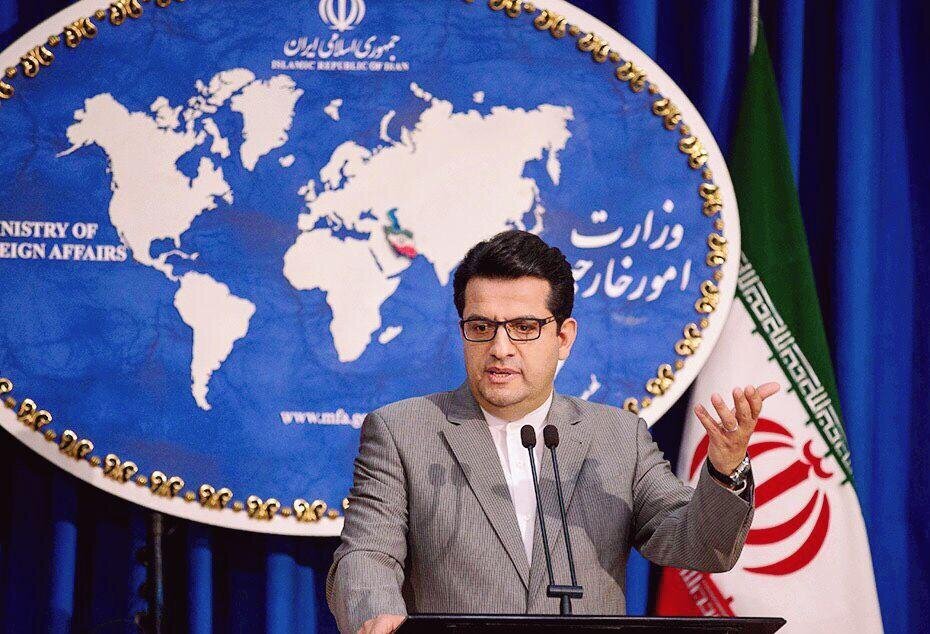Mousavi: Iran ready to exchange all detainees, ball in U.S. court now

TEHRAN - Iranian Foreign Ministry spokesman on Saturday voiced Tehran’s readiness to exchange the entire Iranian detainees who are in the U.S. custody, noting the ball is now in Washington’s court to decide wisely.
A couple of days ago, the United States released Massoud Soleimani, an Iranian scientist who was arrested last year by the U.S. for allegedly violating American trade sanctions against Iran. Soleimani flew along with Foreign Minister Zarif from Zurich to Tehran. He was released in a prisoner exchange through mediation efforts by Switzerland.
Iran also freed an American graduate student who had been imprisoned in Tehran for more than three years on charges of being a spy.
“After the release of Massoud Soleimani, Zarif offered on his Twitter account a form of exchange, and now, we are ready to exchange our hostages in the U.S. as the ball is now in Washington’s court,” Seyed Abbas Mousavi said in Tabriz.
On a plan by President Hassan Rouhani to visit Japan, he said, “Japan had previously submitted some offers to de-escalate tensions (between Iran and the U.S.). We hope to gain suitable results in the president’s trip to Tokyo whose offer has been based on goodwill and hope.”
“The U.S. has always used pressure as a policy, however, we must immune ourselves against such pressures,” Mousavi added.
Reuters reported on Tuesday that President Rouhani may visit Japan on Dec. 19 for talks with Japanese Prime Minister Shinzo Abe.
--------‘U.S. withdrawal from INF treaty will destabilize the globe’
Elsewhere in his remarks, Mousavi condemned the U.S. recent missile test, saying, “We express concern over the U.S. new missile test and announce that the U.S. unilateral withdrawal from the Intermediate-Range Nuclear Forces treaty (INF) will destabilize the globe.”
On to the outcome of an election in Britain which the Conservatives won the majority, he said it is an internal affair and the Iranian Foreign Ministry has no intention to comment on it. “Other nations’ internal affairs have nothing to do with us and we evade from such interferences.”
Mousavi added, “We hope that Britain comes to a conclusion to fulfill its undertakings under the nuclear deal. We hope that the British government, regarding its current situation, along with the European Union, France, Germany, Russia, and China adhere to their commitments under the deal to pave the way to return to the JCPOA.”
Under the JCPOA - the Joint Comprehensive Plan of Action – Iran agreed to put limits on its nuclear activities in exchange for the termination of economic and financial sanctions.
Touching upon the tension between the Republic of Armenia and the Republic of Azerbaijan over the Nagorno-Karabakh region, Mousavi said, “We, within the framework of international law and existing resolutions, have voiced our readiness to do our best to narrow down the tension between the two countries.”
Mousavi also lashed out at the U.S. for imposing a ban on the export of medicines to Iran, saying, “The claim that food and medicine are not among the U.S-sanctioned items is a lie. The U.S. sanctions on Iran are blatant examples of economic terrorism and crime against humanity.”
Earlier this month, Zarif said that those countries which seemingly supported the 2015 nuclear deal were, unfortunately, preventing exports of medicines for special patients in Iran.
“As the issue is necessary and important, I am telling to the Europeans another time that Iran does not expect a country which has voiced support for the JCPOA to prevent a pharmaceutical company from exporting medicines for patients suffering from special diseases,” Zarif said on the sidelines of cabinet session with a reference to his visit to Sweden.
“Wound-dressing for the children suffering from butterfly disease can’t be produced in all countries. Of course, Iran experienced good progress but it is being produced in low quantity. A few numbers of pharmaceutical companies can produce it,” the minister stated.
“A Swedish company that has been exporting it (wound-dressing for butterfly patients) to Iran, is now unable to continue its trade with us due to the U.S. sanctions and oppressive behavior. I have to remind the Europeans that it is very good that you have decided to join INTEX, but as the Americans are claiming that medicines and humanitarian services are not included in the sanctions list, you Europeans do not embark on imposing a medicine embargo on Iran,” Zarif said.
MJ/PA
Leave a Comment